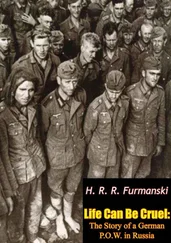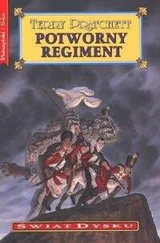Wolf Baudissin - Life in a German Crack Regiment
Здесь есть возможность читать онлайн «Wolf Baudissin - Life in a German Crack Regiment» — ознакомительный отрывок электронной книги совершенно бесплатно, а после прочтения отрывка купить полную версию. В некоторых случаях можно слушать аудио, скачать через торрент в формате fb2 и присутствует краткое содержание. Жанр: foreign_antique, foreign_prose, на английском языке. Описание произведения, (предисловие) а так же отзывы посетителей доступны на портале библиотеки ЛибКат.
- Название:Life in a German Crack Regiment
- Автор:
- Жанр:
- Год:неизвестен
- ISBN:нет данных
- Рейтинг книги:3 / 5. Голосов: 1
-
Избранное:Добавить в избранное
- Отзывы:
-
Ваша оценка:
- 60
- 1
- 2
- 3
- 4
- 5
Life in a German Crack Regiment: краткое содержание, описание и аннотация
Предлагаем к чтению аннотацию, описание, краткое содержание или предисловие (зависит от того, что написал сам автор книги «Life in a German Crack Regiment»). Если вы не нашли необходимую информацию о книге — напишите в комментариях, мы постараемся отыскать её.
Life in a German Crack Regiment — читать онлайн ознакомительный отрывок
Ниже представлен текст книги, разбитый по страницам. Система сохранения места последней прочитанной страницы, позволяет с удобством читать онлайн бесплатно книгу «Life in a German Crack Regiment», без необходимости каждый раз заново искать на чём Вы остановились. Поставьте закладку, и сможете в любой момент перейти на страницу, на которой закончили чтение.
Интервал:
Закладка:
Wolf Ernst Hugo Emil Baudissin
Life in a German Crack Regiment
PREFACE
Lieutenant Bilse, Beyerlein, and Baron von Schlicht, 1 1 This is a pen-name. The author's actual name is Count von Baudissin.
the author of the present work, with their many less-known followers, have managed among them to create what may be regarded as a novel of a new species – the "critical" military novel. What is commonly called the "military novel," has, of course, long been known in Germany, but it differed considerably from the new species. The older military novel gave more or less lively pictures of camp, garrison and casino life, and the gay young lieutenant who generally figured as hero was much adored by ladies (as indeed he still is). But between the lieutenant of romance and the lieutenant of stern reality there is a gulf. Readers have now before them the lieutenant of reality, and the uplifting of the veil on his interesting, if not very edifying, personality and doings, has aroused in Germany a curious storm of indignation, especially in army and official circles. Indeed, as may be remembered, Baron von Schlicht was "insulted" over the present work in the Reichstag itself, and the affair went so far that a duel nearly followed. The widespread interest taken in these revelations of military life is testified by the number of copies of the present work (40,000) which have been sold in Germany, though its circulation is now forbidden there; while for his outspokenness in this novel it is rumoured that Baron von Schlicht has to meet his trial in Berlin very shortly.
Though widely known as the author of various military sketches and stories of a more or less light and humorous turn, in the present case Baron von Schlicht shows little trace of his characteristic vein. Here, rather, he devotes himself seriously to making what is in effect a detailed and apparently dispassionate exposé in regard to the manners and morals of officers of the old nobility in the German army. The indignation aroused against him is all the greater as he himself belongs to the old nobility which he so freely criticises, and he has the further advantage of speaking from inside knowledge of the officers' caste (Offiziers-Kaste) to which he himself belonged during his military career. Lieutenant Bilse wrote from outside this circle of the old nobility; thus Baron von Schlicht's work fills a gap which Lieutenant Bilse's book still left open.
R. M.CHAPTER I
By Command of the Emperor
The "Yellow Butterflies," as Franz Ferdinand Leopold's infantry regiment was called on account of its yellow epaulettes, was celebrating its anniversary; the day when, more than forty years ago, it lost in a famous battle a third of its rank and file and more than half of its officers. The memory of the heroic deeds of the regiment could not be allowed to perish; the younger generation were continually reminded of them, and thus the celebration of the anniversary of the famous battle was accompanied by the toast: "In remembrance of the fallen; for the encouragement of the living." The fallen, for what they had done, were given every year a magnificent wreath tied with a gigantic ribbon of the regimental colours; the living, who had as yet done nothing, were given a splendid dinner with equally splendid wine: and when the enthusiasm aroused by the official speech of the colonel, under the influence of the champagne, had done its work, the officers all declared again and again that when the regiment went into battle they would know how to die as bravely as their comrades – and they really meant what they swore.
To-day the anniversary was being celebrated with especial magnificence, for new officers' quarters were to be opened, which were to be used exclusively as a mess-room. Only at mid-day, as he was preparing his oration, did it occur to the colonel that the dedication of this building, which was intended for purely pleasurable purposes, was not altogether in harmony with the solemn anniversary of the dead. He could not very well say, "In order to honour the noble dead we open to-day our new mess-room, which, I hope, will be a financial success." Certainly that would not do. Then a way out of the difficulty occurred to the colonel; he would simply say, "And we vow to the fallen heroes, that within these walls we will above all practise the spirit of comradeship, and the soldierly virtues, which animated them and fitted them to perform their heroic deeds." That would make a suitable impression; and so in a pleasant frame of mind he betook himself to the mess-room where there was much excitement and bustle. In the morning the usual formalities had been followed; almost all the former officers of the regiment had appeared, the closely allied regiments had sent deputations, and nobody had come with empty hands. A veritable shower of silver ornaments had been poured upon the "Golden Butterflies," and now all were thronging into the reception-rooms, greeting mutual friends, admiring the presents, and awaiting the arrival of the important officials.
Dinner was to take place at seven o'clock, and on the stroke of the hour the representative of His Majesty appeared. Originally the Emperor had promised the regiment the honour of his presence, but at the last moment he had been prevented from attending.
The music began, and in a long procession the company went into the dining hall. A cry of admiration broke from the lips of everyone at the sight of the magnificent apartment with its gorgeous decorations and beautifully laid table.
The officers of the "Golden Butterflies" who led in the guests swaggered a bit, and drew themselves up as much as to say, "Yes, this is what we're like, that's how we do things. We have been quite long enough housed in a fashion unbecoming to our rank. But now, where is the regiment that can boast of such apartments?" They knew that on account of their old mess-room, in which, according to the declaration of a cavalry officer of the Guards, no self-respecting man could feel really happy, they had often been slighted. Formerly they had been the worst off in this respect; now they were the best. The "Golden Butterflies" beamed; each word of compliment and admiration which the guests expressed sounded like heavenly music in the ears of the officers, and each seemed as proud as if it were due to him that at last they had a new mess-room. And in truth, each had done his share, for if all of them did not appreciate so highly the calling and honour of an officer as in bygone days, yet the officers and friends of the regiment in earlier times could never had raised such a large sum as was required for the erection and furnishing of this building. As the bearers of old and honoured names, each of the officers was conscious of his position and his duty, for the "Golden Butterflies" were proud to be considered one of the haughtiest and most exclusive of regiments in the whole army.
With pride they regarded their guests, all of whom bore important names. A lieutenant of the Uhlans, Baron Gersbach, whom all knew as a great gambler, stuck his eyeglass in his eye, examined the persons at the table, and then turned to his neighbour; "Really a highly select company; not a single man belonging to the middle class is present."
"Yes, but there is – one – "
The Uhlan stuck his eyeglass more firmly in to his eye to discover which it was.
"Who is it?" he asked at last.
"The architect who built the place."
"Ah, well, he hardly counts. But why did you invite him to dinner?"
"We thought about the matter for a very long time, but we came to the conclusion we could not do otherwise. The fellow formerly served in this regiment for a year, and out of attachment and love for the regiment he drew up the plans free of cost, and he has also charged nothing for all the trouble he has taken. Well, we had to show ourselves equally obliging."
Читать дальшеИнтервал:
Закладка:
Похожие книги на «Life in a German Crack Regiment»
Представляем Вашему вниманию похожие книги на «Life in a German Crack Regiment» списком для выбора. Мы отобрали схожую по названию и смыслу литературу в надежде предоставить читателям больше вариантов отыскать новые, интересные, ещё непрочитанные произведения.
Обсуждение, отзывы о книге «Life in a German Crack Regiment» и просто собственные мнения читателей. Оставьте ваши комментарии, напишите, что Вы думаете о произведении, его смысле или главных героях. Укажите что конкретно понравилось, а что нет, и почему Вы так считаете.












